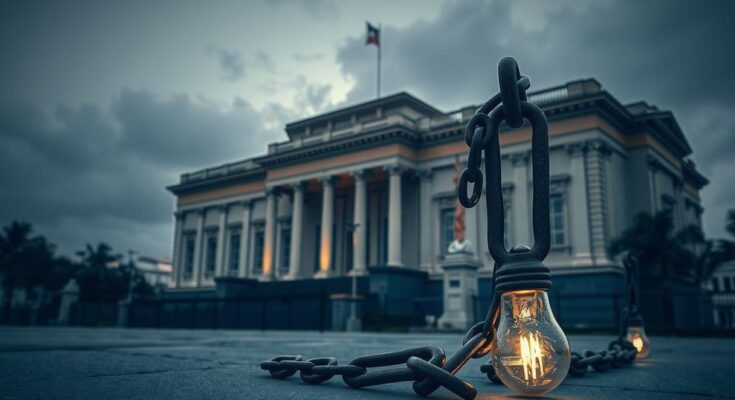Peru’s Congress passed a law restricting NGOs, preventing them from suing the state for human rights abuses. Critics argue this legislation impedes justice and perpetuates impunity. Supporters claim it promotes transparency, yet it raises serious concerns regarding civil rights advocacy in the country.
Recently, Peru’s Congress passed a controversial reform to its international cooperation law, prompting significant backlash from rights groups. This law introduces rigorous restrictions on non-governmental organizations (NGOs), including a provision that prohibits them from initiating legal action against the state for human rights violations. Essentially, the reform constrains NGOs’ capacity to advocate for justice and accountability, raising concerns among various civil society organizations.
The enactment of this law represents a critical blow to the rights of NGOs in Peru, potentially undermining their capacity to hold the state accountable. Critics emphasize that the law enhances impunity and stifles essential human rights advocacy. As the situation evolves, much attention will be on how the government responds within the stipulated two-week timeframe to enact or amend the legislation.
Original Source: www.dw.com




